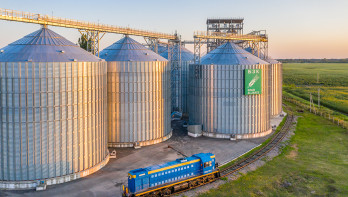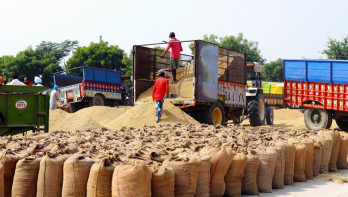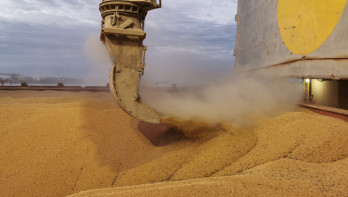Analysis Grains
Russian farmers see no future in winter wheat
The European wheat trade seems less impressed by the developments in the war between Russia and Ukraine than their American counterparts. What Russia will do after the first attack by Ukraine with Atacms missiles on Russian territory is unclear. Russian grain growers face problems of a different nature. They see that their margins are under heavy pressure and with a dry autumn, they find the risk of sowing winter wheat to be too great. This puts grain growers directly at odds with Putin's ambitions to make Russia an agricultural superpower.
The December contract for wheat on the Matif remained unchanged at €218 per ton yesterday. Wheat on the CBoT closed 0.5% higher at $5.49¾ per bushel. Corn took a step back and closed 0.5% lower at $4.27¼ per bushel. Soybeans showed a sharper decline, closing 1.1% lower at $9.98½ per bushel.
In Chicago, wheat traders are more nervous about the war in Ukraine than in Paris, as the picture that emerges after the last trading day. Ukraine yesterday used American Atacms missiles for the first time. The target was an ammunition depot in Bryansk, about 110 kilometers from the Ukrainian border. Last weekend, the U.S. president authorized Ukraine to use these long-range missiles on targets deep in Russia.
Since these are American missiles, Russia could interpret this attack as a NATO attack on Russia. It is not yet clear how the Kremlin will respond to the attack. However, the U.S. announced today that it will not open the embassy in Kiev for fear of a retaliatory attack by Russia on the Ukrainian capital.
Declining trend
Putin has the ambition to make Russia an agricultural superpower. The Kremlin aims to gain more international influence as the country faces Western sanctions due to the invasion of Ukraine. By far the most important agricultural export product of Russia is wheat. However, the Russian harvest shows a declining trend. After the record of 104.2 million tons of wheat in 2022, the harvest in 2023 amounted to 92.8 million tons, and according to preliminary estimates, last year's harvest yielded 83 million tons of wheat.
The upcoming harvest could turn out to be even lower, as reported by Reuters based on sources in Russia. The wheat price is too low for Russian farmers to make a profit with wheat. "We lose money on every ton of wheat. The selling price does not cover the costs," says Arkady Zlochevsky, director of the Russian Grain Union to Reuters. Last season, there was late spring frost followed by a dry summer, and in some regions, there was waterlogging during the harvest. Due to high costs for machinery and fuel, rising export duties, high interest rates (the Russian central bank's key rate rose to 21% in October), and the reduction of agricultural subsidies, wheat growers' margins are under pressure. "The wheat price has remained almost the same between 2022 and 2024, while the costs for grain production have increased by at least 28%," Sergei Lisovsky, a parliament member from the Kurgan province, told Reuters.
The very dry conditions this autumn do not encourage farmers to grow winter wheat. Some analysts believe that farmers are waiting to see what wheat prices will do in the coming weeks. Others see a trend where Russian farmers are more inclined to grow niche crops such as peas or sunflowers. For farmers facing difficulties, declining margins are more important than the status on the world stage that Putin values.
Soybeans thriving in South America
Soybeans came under pressure during the last trading session due to relatively favorable weather in South America. The rains in the southern part of Brazil and the central part of Argentina have passed in recent days. Favorable for fieldwork but less favorable for growth. Rain is forecasted in these areas in the coming days, which can greatly benefit soybeans. The Brazilian Abiove raised the yield expectation for the upcoming soybean harvest to 167.7 million tons. However, they still fall slightly short of the USDA's forecast, which earlier this month estimated the harvest at 169 million tons.

Jurphaas Lugtenburg
© DCA Market Intelligence. Op deze marktinformatie berust auteursrecht. Het is niet toegestaan de inhoud te vermenigvuldigen, distribueren, verspreiden of tegen vergoeding beschikbaar te stellen aan derden, in welke vorm dan ook, zonder de uitdrukkelijke, schriftelijke, toestemming van DCA Market Intelligence.



